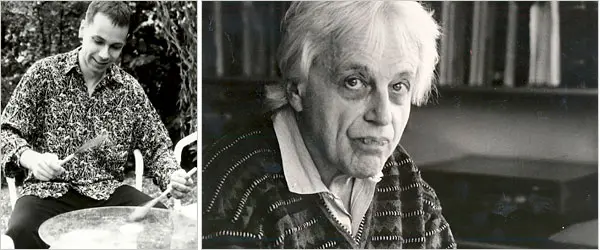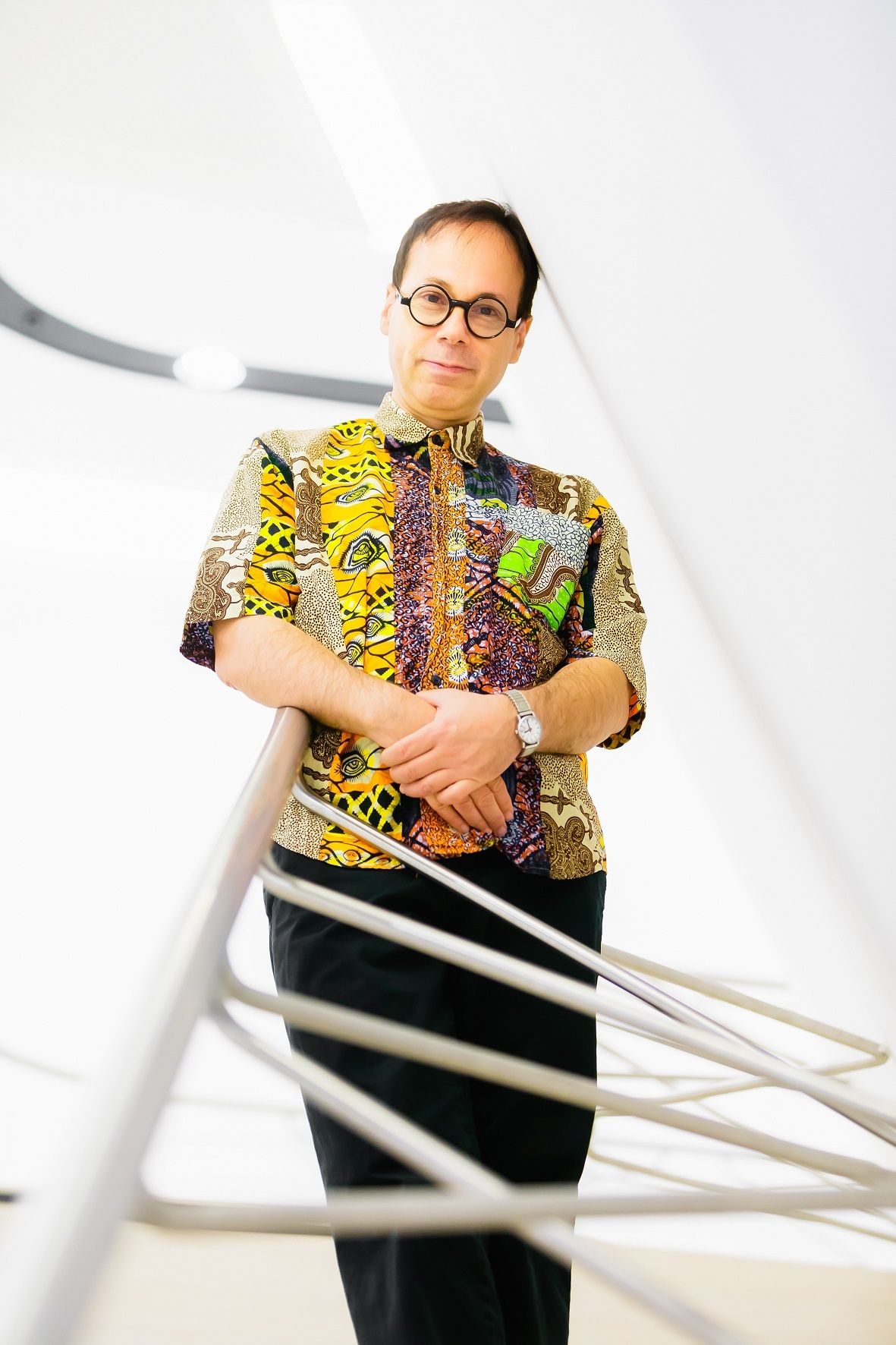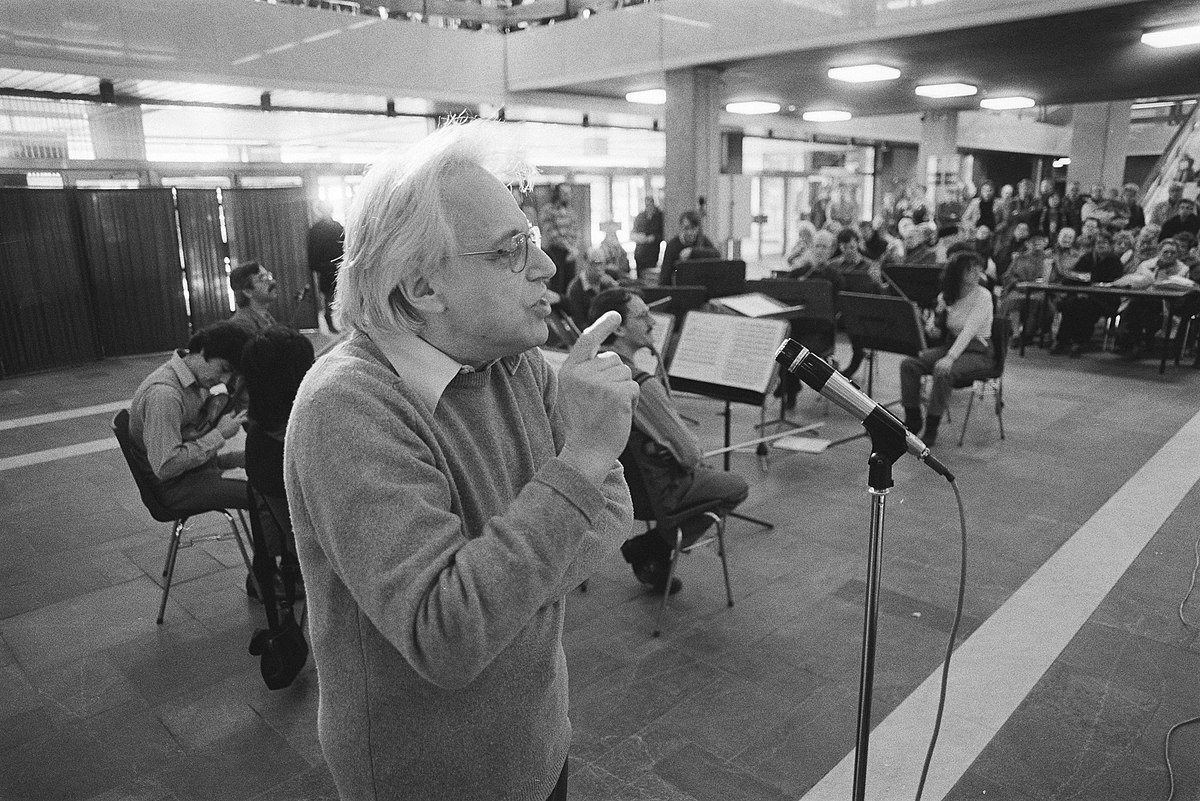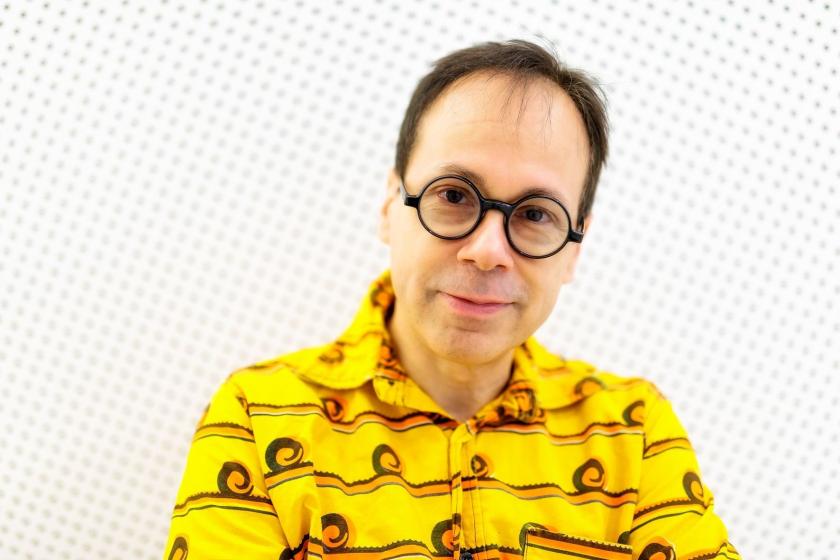The music of various African regions and cultures has played a significant role in shaping my own music. My exposure to African traditional music, which started not long after I began my own composition studies, helped me develop my unique artistic voice as a composer, and I owe this influence in part to my father and, indirectly, to his composition class in Hamburg.
After graduating high school in 1983, I discovered a passion for music that I had never explored before. Despite never studying with my father, I did attend his composition class a few times over the years, including a final visit to a conference. My father and I had many conversations and he made me mixtapes featuring Caribbean and African music. While the Hamburg composition class focused on mainly on microtonality, my own interests led me towards a deeper exploration of African music. This was also influenced by other events during my studies in Vienna, especially a lecture by the ethnomusicologist Gerhard Kubik.
My father learned of salsa and music from the Banda-Linda people of the Central African Republic from his composition student Roberto Sierra in Hamburg. He was fascinated by the Banda-Linda's polyphony and became friends with ethnomusicologist Simha Arom. My father's constant search for originality and innovation was a fundamental aspect of his life, both as a person and artist. I have adopted these values with great conviction, and as a result, upon my initial exposure to African music, I started reflecting on how I could arrive at new, independent reactions to what I had learned (son and father pictured below).  My conversations with my father have had an impact on my thoughts and the way I create music, although they were not structured or planned. While I love my father's work, I have intentionally strived to create something unique and distinct from his style. I have searched extensively for inspiration, even embracing sources that might appear unconventional. However, my father's influence on my approach to seeking new possibilities and pushing myself to be original is undeniable.
My conversations with my father have had an impact on my thoughts and the way I create music, although they were not structured or planned. While I love my father's work, I have intentionally strived to create something unique and distinct from his style. I have searched extensively for inspiration, even embracing sources that might appear unconventional. However, my father's influence on my approach to seeking new possibilities and pushing myself to be original is undeniable.
When people communicate with each other in a way that allows them to learn from and inspire one another, they not only transfer information deliberately or systematically, but also through somewhat less tangible forms of mutual inspiration, akin to a conceptual osmosis. This occurred between myself and my father, but I also felt this sensation with some African musicians I've collaborated with, such as the balafonist Aly Keïta or the sabar player Leye M'baye. As a result, I have developed a unique blend of interests, skills, and values, which continues to evolve as I discover new sources of inspiration, including my father's music in which new aspects can always be found and appreciated.
As I explore music, I constantly ask myself questions, fully aware that any answers I come up with will inevitably lead to new questions. I don't try to change my interests to fit my situation, but instead, I strive to adjust my situation to support my interests. My father, who faced restrictions on freedom of expression and access to information in communist Hungary, also prioritised his musical pursuits over adapting to a totalitarian government. Fleeing the country was necessary, as it allowed him to continue developing his ideas without hindrance. He never considered compromising his creativity for the sake of opportunism.
 Throughout his life, my father was a dedicated individualist. When he arrived in Austria with no money, he searched for employment by sending letters to conservatories, universities, and music organisations across the globe. After sending out hundreds of letters, he received a single reply from the Studio for Electronic Music in Cologne - a very lucky circumstance. He quickly established himself at the vanguard of the European avant-garde and also taught at the Darmstadt Summer Courses, but soon distanced himself from the serialist and post-serialist movements of European mainstream modernism. He developed his own composition techniques, such as micropolyphony, but as a teacher he never attempted to influence others to compose like he did. Instead, he pushed his students to develop their own styles and self-critique. He fostered a collaborative environment in his composition class, encouraging discussion and exploration of new musical ideas. He didn't support forming a compositional school and urged his students to develop their own unique positions. He admired unconventional composers like Partch and Nancarrow. Despite his anti-establishment views and having something of an outsider status, he was well-received by established groups and received some of the most recognized awards that are usually accessible only to much more mainstream artists.
Throughout his life, my father was a dedicated individualist. When he arrived in Austria with no money, he searched for employment by sending letters to conservatories, universities, and music organisations across the globe. After sending out hundreds of letters, he received a single reply from the Studio for Electronic Music in Cologne - a very lucky circumstance. He quickly established himself at the vanguard of the European avant-garde and also taught at the Darmstadt Summer Courses, but soon distanced himself from the serialist and post-serialist movements of European mainstream modernism. He developed his own composition techniques, such as micropolyphony, but as a teacher he never attempted to influence others to compose like he did. Instead, he pushed his students to develop their own styles and self-critique. He fostered a collaborative environment in his composition class, encouraging discussion and exploration of new musical ideas. He didn't support forming a compositional school and urged his students to develop their own unique positions. He admired unconventional composers like Partch and Nancarrow. Despite his anti-establishment views and having something of an outsider status, he was well-received by established groups and received some of the most recognized awards that are usually accessible only to much more mainstream artists.
Like my father, I have always stood up for what I believe in. I refuse to conform to ideologies that do not align with my values and have been vocal about my opposition to restrictive beliefs. It takes dedication to stay true to oneself, and I have learned this from my father. He has always rejected political extremes with unwavering integrity and a strong moral compass.(Pictured below: Ligeti Senior speaking in 1984). I think that my father, the older he became, divorced himself more and more from fashions and became increasingly independent.. And I think that in the Hamburg Concerto he figured out some approaches to harmony that I think he had been trying to find for a while, and in many ways, it is in that late work that some of the experiments and concerns that run like a thread through his works of the 1980s and 90s came to ultimate fruition.
I think that my father, the older he became, divorced himself more and more from fashions and became increasingly independent.. And I think that in the Hamburg Concerto he figured out some approaches to harmony that I think he had been trying to find for a while, and in many ways, it is in that late work that some of the experiments and concerns that run like a thread through his works of the 1980s and 90s came to ultimate fruition.
My music is connected to my father’s by how different it is. What I mean by that paradox is that both he and I share an independence of spirit and an openness of connecting with other cultures, even if our musics sound completely different. With that said, over time, I have also allowed more obvious influences from my father to permeate my music.
- Ligeti Day at the Aldeburgh Festival was on Friday 23 June and includes 15 world premieres by the Ligeti Quartet of works inspired by the composer’s Etudes including Lukas Ligeti’s Entasis.
- Read classical music reviews on theartsdesk














Add comment